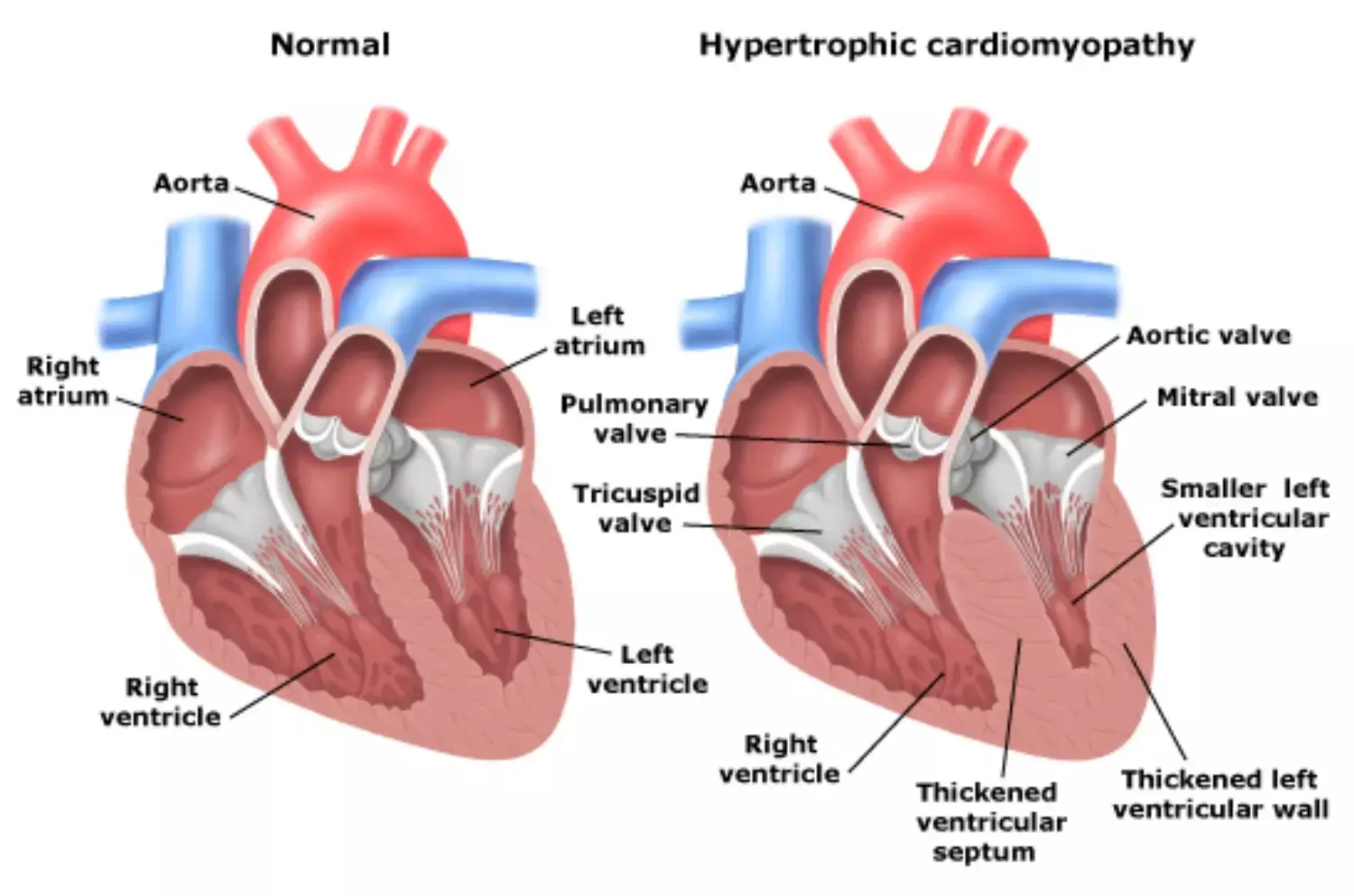- Home
- Medical news & Guidelines
- Anesthesiology
- Cardiology and CTVS
- Critical Care
- Dentistry
- Dermatology
- Diabetes and Endocrinology
- ENT
- Gastroenterology
- Medicine
- Nephrology
- Neurology
- Obstretics-Gynaecology
- Oncology
- Ophthalmology
- Orthopaedics
- Pediatrics-Neonatology
- Psychiatry
- Pulmonology
- Radiology
- Surgery
- Urology
- Laboratory Medicine
- Diet
- Nursing
- Paramedical
- Physiotherapy
- Health news
- Fact Check
- Bone Health Fact Check
- Brain Health Fact Check
- Cancer Related Fact Check
- Child Care Fact Check
- Dental and oral health fact check
- Diabetes and metabolic health fact check
- Diet and Nutrition Fact Check
- Eye and ENT Care Fact Check
- Fitness fact check
- Gut health fact check
- Heart health fact check
- Kidney health fact check
- Medical education fact check
- Men's health fact check
- Respiratory fact check
- Skin and hair care fact check
- Vaccine and Immunization fact check
- Women's health fact check
- AYUSH
- State News
- Andaman and Nicobar Islands
- Andhra Pradesh
- Arunachal Pradesh
- Assam
- Bihar
- Chandigarh
- Chattisgarh
- Dadra and Nagar Haveli
- Daman and Diu
- Delhi
- Goa
- Gujarat
- Haryana
- Himachal Pradesh
- Jammu & Kashmir
- Jharkhand
- Karnataka
- Kerala
- Ladakh
- Lakshadweep
- Madhya Pradesh
- Maharashtra
- Manipur
- Meghalaya
- Mizoram
- Nagaland
- Odisha
- Puducherry
- Punjab
- Rajasthan
- Sikkim
- Tamil Nadu
- Telangana
- Tripura
- Uttar Pradesh
- Uttrakhand
- West Bengal
- Medical Education
- Industry
Mavacamten improves health status of patients of Symptomatic Obstructive Hypertrophic Cardiomyopathy: Lancet

Mavacamten significantly showed better health status as compared to the placebo in patients with symptomatic obstructive hypertrophic cardiomyopathy, according to a study published in The Lancet journal.
Cardiomyopathy is a disorder in which the heart is unable to pump blood efficiently. There are three main types of cardiomyopathy: dilated, hypertrophic and restrictive cardiomyopathy.
Hypertrophic cardiomyopathy is a genetic condition. It is characterized by significant hypertrophy of the myocardium. It is generally associated with dynamic left ventricular outflow tract obstruction and the patient may show symptoms of shortness of breath, angina, and syncope. Monitoring and treating these symptoms is an initial goal in patients with obstructive hypertrophic cardiomyopathy. Presently, the medications used for hypertrophic cardiomyopathy are not specifically made for it, hence they are not 100% effective and sometimes poorly tolerated.
A study was conducted by Spertus J et. al to evaluate the efficacy of Mavacamten (first-in-class cardiac myosin inhibitor), on patients' symptoms, physical and social function, as well as the overall quality of life.
The researchers conducted a health status analysis of EXPLORER-HCM, a phase 3, double-blind, randomized, placebo-controlled trial. They included 68 clinical cardiovascular centers in 13 countries.
They assessed a total of 429 adults between May 30, 2018 to July 12, 2019, with symptomatic obstructive hypertrophic cardiomyopathy (gradient ≥50 mm Hg and New York Heart Association class II-III). Out of which 251 were finalized for the study. They were randomly divided into two groups (1:1) and were treated with either Mavacamten (123 patients) or placebo (128 patients) for 30 weeks, followed by an 8-week washout period.
The Kansas City Cardiomyopathy Questionnaire (KCCQ), was an outcome for this secondary analysis. It was given at baseline and weeks 6, 12, 18, 30 (end of treatment), and 38 (end of study). Any alterations from baseline to week 30 in KCCQ overall summary (OS) score and all subscales were analyzed using mixed model repeated measures.
The findings of the study are as follows:
Ø 92 (75%) people from the mavacamten group completed the KCCQ at baseline and week 30 and 88 (69%) people from the placebo group completed the KCCQ at baseline and week 30.
Ø At 30 weeks, the alterations in the KCCQ-OS score was greater with mavacamten group than the placebo group, (mean score 14·9 [SD 15·8] vs 5·4 [13·7]; difference +9·1 [95% CI 5·5–12·8]; p<0·0001), with similar benefits across all KCCQ subscales.
Ø Large changes in the KCCQ-OS score (KCCQ-OS ≥20 points) were seen more in the mavacamten group (36%) as compared to the placebo group (15%); with an estimated absolute difference of 21% (95% CI 8·8–33·4) and the number needed to treat five (95% CI 3–11). These gains returned to baseline after treatment was stopped.
The study concluded that Mavacamten significantly demonstrated improved health status of patients with symptomatic obstructive hypertrophic cardiomyopathy when compared with placebo, with a low number needed to treat for a marked improvement.
Reference
A study titled, "Mavacamten for treatment of symptomatic obstructive hypertrophic cardiomyopathy (EXPLORER-HCM): health status analysis of a randomized, double-blind, placebo-controlled, phase 3 trial" by Spertus J et. al published in The Lancet.
DOI: https://doi.org/10.1016/S0140-6736(21)00763-7
Dr. Shravani Dali has completed her BDS from Pravara institute of medical sciences, loni. Following which she extensively worked in the healthcare sector for 2+ years. She has been actively involved in writing blogs in field of health and wellness. Currently she is pursuing her Masters of public health-health administration from Tata institute of social sciences. She can be contacted at editorial@medicaldialogues.in.
Dr Kamal Kant Kohli-MBBS, DTCD- a chest specialist with more than 30 years of practice and a flair for writing clinical articles, Dr Kamal Kant Kohli joined Medical Dialogues as a Chief Editor of Medical News. Besides writing articles, as an editor, he proofreads and verifies all the medical content published on Medical Dialogues including those coming from journals, studies,medical conferences,guidelines etc. Email: drkohli@medicaldialogues.in. Contact no. 011-43720751


